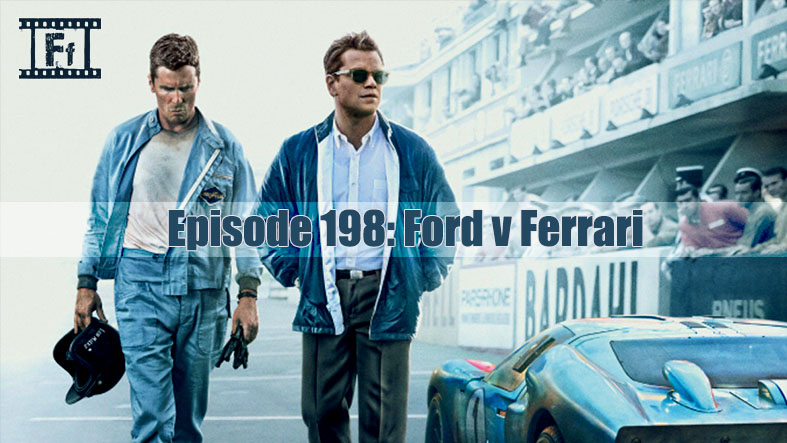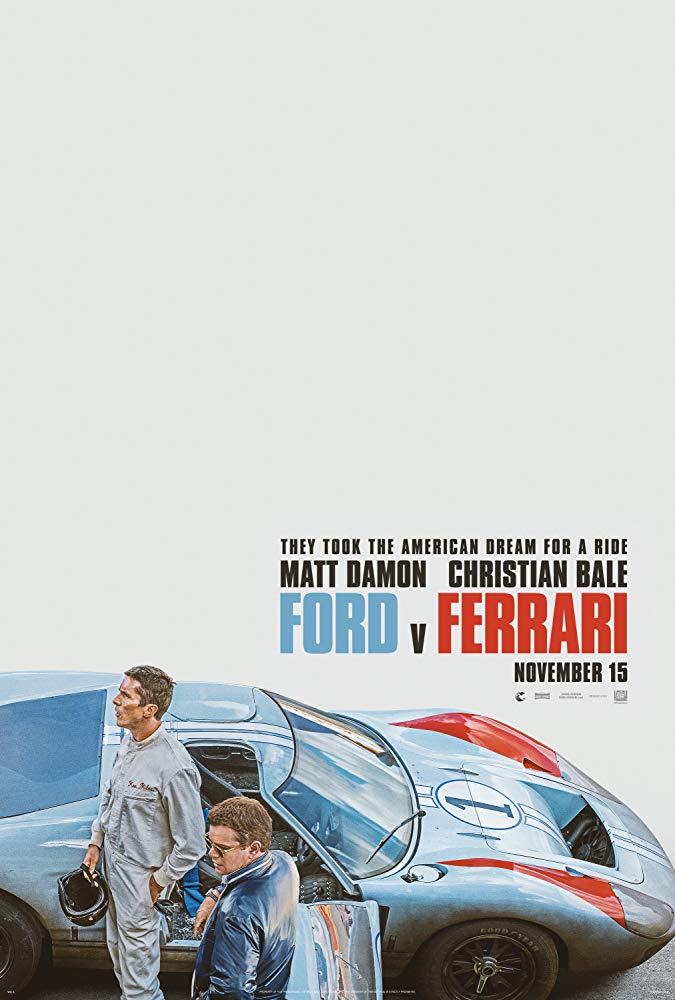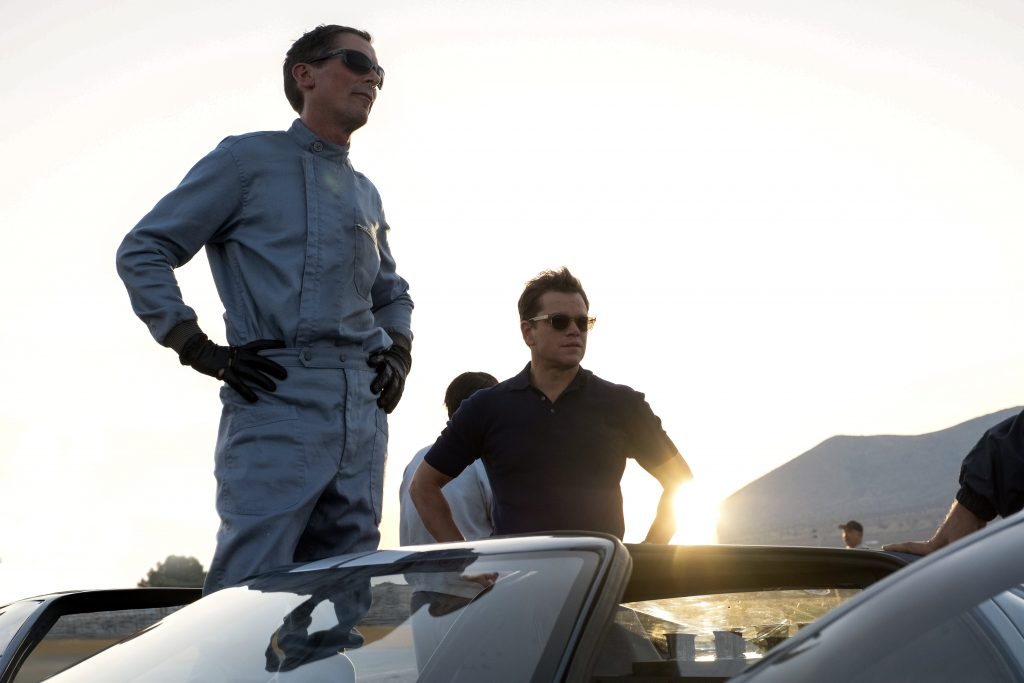LESSON #1: ARGUE WITH A LEG TO STAND ON— Call it an occupational hazard built by years of fandom, research, and practice, but I tell myself everyday (maybe not to a Stuart Smalley level, but close) that I’ve got a pretty good head on my shoulders and a better-than-decent eye for the good, bad, great, and ugly when it comes to just about anything movie-related. That passion gets me in plenty of debates online and across social media on any range of topics (masterpieces vs. classics, best vs. favorite, etc). Wearing the critic badge on top of that knowledge, I get labeled arrogant and full of hubris. To me, it’s not hubris when the stances are educated and supported with substance. I’ve done my homework and I’ve come prepared or I wouldn’t be debating in the first place. I can’t say the same thing for many other people on the other side of debates. The language of this lesson is a plea that if you’re going to present an argument or stance, be able to back it up. The substance of your stance has to be stronger than wimpy likes and dislikes. The trolls and whiners I meet don’t have that integrity. For example, see an actor or director’s filmography before making any declarations for or against them in any point of comparison. Even more egregious, see the actual film you’re debating and labeling before laying judgment. Bring more to the table than thin personal preferences and clickbait hearsay. Bring a little more objectivity beyond the surface-level subjectivity.
LESSON #2: MAKE CHARACTERIZATIONS THAT FIT STORYLINES— As if irascible and irrational Star Wars fans had to find more things to hate, pockets of new semi-protests started up this week before the release of Solo: A Star Wars Story when Lando Calrissian actor Donald Glover and screenwriter Jonathan Kasdan declared the character to be pansexual. There are many angles to consider here from this left-field turn. Increased LGBTQ+ representation is always a welcome thing in these modern and more progressive times and, secondly, writers/actors are allowed their interpretation of characters they play. However, reflect on making such a label or change purposeful and not a measure of tokenism. Consider the fit and don’t shoehorn in LGBTQ+ characters for the sake of doing so without actually having the story to do so. This one feels like tokenism and a hollow attempt at praise. That said, this, whether for or against, is not a reason to protest a film or abandon a beloved character.
LESSON #3: KNOWN FATES TAKE AWAY FROM THE SUSPENSE— I have to reprint this irrefutable dilemma from my Solo: A Star Wars Story review from Every Movie Has a Lesson. This goes for every prequel in existence. Because the audience knows certain characters have documented futures, there is a perceptible, if not even enormous, storytelling loss in the peril department. The edge of one’s seat becomes a little more relaxed and more than a bit farther away. In Solo, no matter what happens to Han Solo, Chewbacca, Lando Calrissian, and the Millennium Falcon, they’re going to be fine. In equal measure, since a large majority of the side characters present in Solo are never mentioned in the films later down the timeline, you might as well put a red shirt of Star Trek doom on each of them. Foregone conclusions like that are not spoiler alerts. Those are plain facts. Ignoring this conundrum is pure gullibility. The common rewind counterargument is “well, it’s about the journey… blah, blah, blah.” Sure, but then the impact of said journey better be damn important or move us to pieces. As hellaciously fun as it is at times, Solo: A Star Wars Story is missing a certain level of that compelling juice.
LESSON #4: JAMES MANGOLD AND BOUNTY HUNTERS ARE A GOOD POTENTIAL FIT— In surprise news on the night of Solo‘s debut, another anthology/prequel backstory was announced by the Mouse House. Logan, Cop Land, and Walk the Line director James Mangold has been tapped to helm a Boba Fett origin film. While that film will have the same predicament as Lesson #3, Boba Fett is at least a character with more intriguing mystery and depth to solve than Han Solo, arguably the most iconic character of the whole franchise. That’s exactly the kind of cult status character that deserves these kinds of standalone film attempts, and, gosh, what a hire. Just imagine a talent like Mangold crafting a grizzled, borderline space western of a relentless pursuer stalking his prey and taking down all comers who cross his path. Grow that legend! Along the same lines, my fingers are crossed that Donald Glover, who steals every scene he’s in from Solo, gets his own film after the inevitable box office success.
LESSON #5: PRE-SCREENINGS CAN DO THEIR JOB IN CATCHING QUESTIONABLE CONTENT BEFORE IT PLAYS TO ALL AUDIENCES— Kudos to the parents who made a stink about some questionable scenes in the upcoming family-marketed film
Show Dogs. You can
read the details here here about some testicular inspection scenes (which true to real dog shows or not) that hit a little too close to predatory sexual grooming allusions if the roles were people instead of dogs voiced by people. The studio is doing the right thing and editing out the poor choices before the theatrical release. This goes to show that some studios have the wherewithal to seek the right approvals before releasing something willy-nilly. Sure, scenes like those shouldn’t have made it past the script editor, but it counts as better late than never to not just make the changes, but listen to the paying customers in the first place.
LESSON #6: SOME PULLED PLUGS ARE WHOLLY DESERVED— Speaking of paying attention and judging the landscape,
Paramount Pictures dropped the seventh
Transformers film from its release schedule. The off-shoot
Bumblebee film is still coming this December, but maybe this long road of Michael Bay trash is finally done. You can only beat dead horses so long. Can Disney borrow the same logic soon with
Pirates of the Caribbean. Just as the cited article suggests, this joy might be short-lived (but it is joy nonetheless). The word “reboot” is being thrown around because once any studio makes several billion dollars, they’re going to want to try and make it happen again. There are always more horses to flog on the big studio lots.
LESSON #7: THE MIGHTY FALL THE HARDEST— Lastly, I was as shocked as the next person by the CNN report of extensive and multiple inappropriate harassment allegations against Oscar-winning A-lister and overall beloved figure Morgan Freeman. He is easily the biggest name to be burned since Kevin Spacey. As with each of these stories that have come to light over the course of the last year (and often stated in this column), no matter who it is, my first reactions are patience and sadness long before anger and judgment. First and foremost, I, for one, refuse to label a man guilty or otherwise on rumors alone until accusations are proven or disproven. I choose to wait. Each person deserves their chance to defend themselves, seek the proper contrition, or both. Until then, disappointment fills me more than anger. I respect the works of these people too much to ever “ban” or “boycott” their careers and erase them from the proverbial record books. I just don’t think that’s right. They existed, their work remains, and it mattered. It may lose some level of respect considering the circumstances, but it’s never reduced to zero for me. My policy has always been to separate the person and the performance. I still watch Kevin Spacey movies and I will still watch Morgan Freeman ones too, only now the impact is softened to a degree.
 DON SHANAHAN is a Chicago-based film critic writing on his website Every Movie Has a Lesson. As an elementary educator by day, Don writes his movie reviews with life lessons in mind, from the serious to the farcical. He is a proud member and one of the founders of the Chicago Independent Film Critics Circle. As a contributor here on Feelin’ Film, he’s going to expand those lessons to current movie news and trends. Find “Every Movie Has a Lesson” on Facebook, Twitter, and Medium.
DON SHANAHAN is a Chicago-based film critic writing on his website Every Movie Has a Lesson. As an elementary educator by day, Don writes his movie reviews with life lessons in mind, from the serious to the farcical. He is a proud member and one of the founders of the Chicago Independent Film Critics Circle. As a contributor here on Feelin’ Film, he’s going to expand those lessons to current movie news and trends. Find “Every Movie Has a Lesson” on Facebook, Twitter, and Medium.







 DON SHANAHAN
DON SHANAHAN DON SHANAHAN is a Chicago-based film critic writing on his website
DON SHANAHAN is a Chicago-based film critic writing on his website